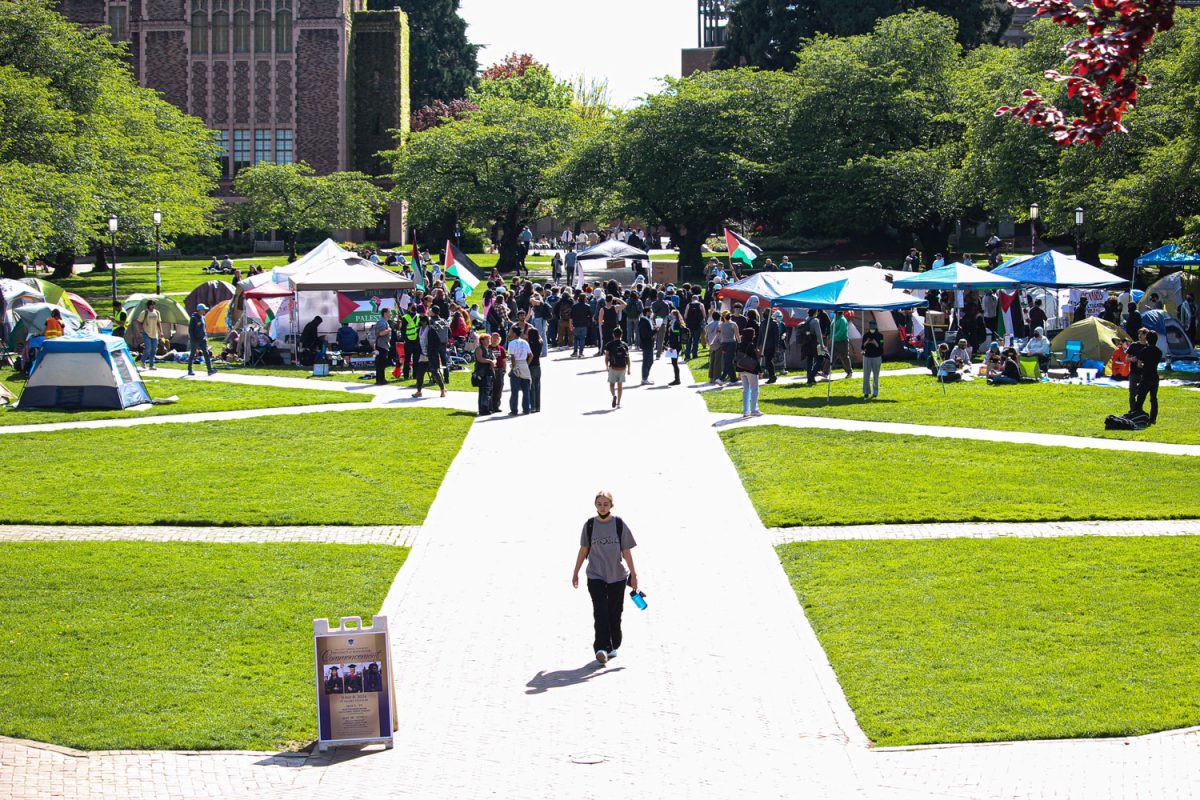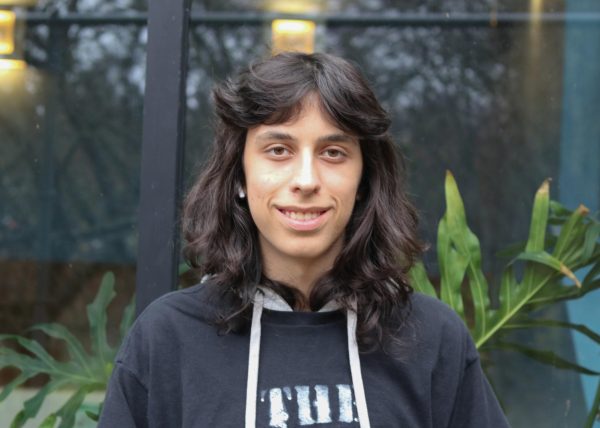Columbia University in New York City found itself as the starting point of a nationwide debate on college campuses. Starting April 17, hundreds of students established a “Gaza Solidarity Encampment,” on the school’s south lawn. After protests overtook Columbia’s Hamilton Hall, NYPD raided the encampment and arrested 112 protesters.

The arrests sparked a domino effect leading to protests on college campuses nationwide.
Washington University in St. Louis, Missouri, has been home to wide-scale occupation protests. Olivia Poolos, a UPrep alumnus (‘20) and former Editor-in-Chief at Student Life, WashU’s student paper, has had to grapple with how tensions on campuses affected her job.
“We’re encountering situations that we had never seen before,” Poolos said. “There’s a lot of Jewish students that are feeling unsafe, a lot of Muslim students that are feeling unsafe, and so a lot of students didn’t want to attach their name [to their interviews].”
Student Life has historically been hesitant to provide anonymity to students in interviews, but last semester they found themselves offering it more.
“The Canary Mission website was doxxing students that they felt were anti Jewish, or, in the beginning, anti Israel.”
The Canary Mission is a website which posts identifying information about individuals it deems antisemitic, although its methodology has been widely critiqued. This left Poolos in a difficult position.
“We didn’t want to get anyone doxxed, we didn’t want to get anyone kicked out of school. So we leaned on the side of more anonymity,” Poolos said.
As time went on, students became more comfortable with sharing their beliefs,
“I think people are just more comfortable with their activism these days and more comfortable being named,” Poolos said.
Britten Nelson, associate director of college counseling at UPrep, commented on how the protests have affected UPrep students.
“I’ve had some juniors who were wanting to visit colleges and they were able to get tours, but the tours were often disrupted by protests,” said Nelson. “In some cases, they had to step over protesters to get like admission officers to go on the tour.”
Statements that the protests are anti-semitic have begun to influence how students feel about their college prospects.
“I’ve talked to some students who are Jewish, and they’ve been on campuses where there’ve been pro-Palestinian, anti-Jewish, anti-Zionist protests, and they felt really uncomfortable and unsafe,” Nelson said.
In response to student discomfort, schools have had to take action, often violently, sparking criticism.
“I can see them having no choice but to use some force as they clear out encampments or protests, and it makes me sad that we have to resort to police force in particular,” Nelson said.
The situation has left Nelson balancing different values.
“If I was an admission counselor trying to enroll students, and I couldn’t get into my office to do my job, I would be frustrated. At the same time, I’d be proud of my current students who are exercising their right to protest,” Nelson said.
Nelson empathizes with the students whose graduations are being cancelled.
“The college class of 2024 is also the high school class of 2020, which means that this group of students had their high school graduations canceled due to Covid, and now some of them are also having their college graduations canceled due to protests as well,” Nelson said.
In solidarity with those arrested at the protests at Columbia, students at the University of Washington established their own encampment on April 29. UPrep alumnus Ilham Mohamed (‘23), a current student at the UW, believes that UPrep students would benefit from being exposed to the protests.
“I think, honestly, witnessing the protests would only do good for students, especially for students coming from UPrep,” Mohamed said. “Having attended UPrep for six years, I am aware that a lot of the students, a lot of the people… are very sheltered when it comes to issues that people sharing their identity aren’t directly being subjected to.”
Mohamed thinks that learning about the campus protests could be beneficial for UPrep students.
“I think, to go to a big university, to see the different issues, and not be able to look away from it … I will say it can only do good for [UPrep students],” Mohamed said.
Some UPrep students feel differently. Senior Colin Carberry committed to Montana State University and feels positively about its distance from the issue.
“There’s so much, for lack of a better term, BS around it,” Carberry said. “I’m going to college for different reasons than to be at the epicenter of a global discussion right?”
Senior Rebecca Myaskovsky, who plans to attend UW next year, doubts the protests will have a significant impact.
“I don’t necessarily think that change within the U.S. comes from protesting at universities,” Myaskovsky said. “It’s an educational institution, so I don’t really know what action it would mean to move forward.”
Still, the protests are causing a stir at colleges nation-wide.
“You’ll hear people being very excited, being very happy and grateful that there are discussions taking place surrounding this topic,” Mohamed said.



